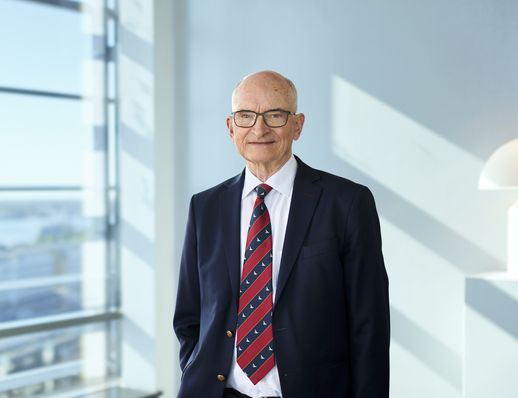The Unified Patent Court
However, cases involving national patents and utility models still belong under the national courts.
In addition, the UPC Agreement will allow certain types of decisions made by the European Patent Office in Munich concerning its administration of the unitary patent to be reviewed by the UPC.
Patent holders will benefit from the system in that it is now easier to enforce patents all over Europe. The downside for patent holders is that it is also easier to revoke patents with effect for all countries where they apply.
The UPC was established by the UPC Agreement. Annex 1 to the UPC Agreement is the Statute of the UPC. The UPC Agreement lays down a general framework for the UPC and its organisation. It is left to the UPC itself to lay down its own Rules of Procedure.
The UPC is composed of a Court of First Instance and a Court of Appeal. The Court of First Instance has a central division and a number of local and regional divisions. The central division will be seated in Paris with a section in Munich, while a section is being opened in Milan presumably in late June 2024.
The cases of the central division are allocated between the sections as follows: The Milan section will deal with cases concerning human necessities (medicine) as well as chemistry and metallurgy. However, the Milan section will not deal with cases about supplementary protection certificates, as the Paris section will deal with these cases instead. The Munich section deals with cases concerning mechanical engineering, lighting, heating, weapons, and blasting, as well as some cases on pharmaceutical patents, and the Paris section deals with the rest of the cases – e.g. cases concerning fixed constructions. The central division in Paris will also deal with the cases that are supposed to go to the Milan section until this section is up and running.
Local divisions will be set up in a member state on request. If more than 100 patent actions have been brought in a member state per year, it may request an additional local division for each one hundred such actions, subject to a maximum of four divisions.
Two or more member states may join forces to set up a regional division. At present, only Sweden and the Baltic countries have set up a regional division. Denmark has set up a local division.
The Court of Appeal is seated in Luxembourg.
The proceedings before the UPC will be presided over by three legally qualified judges. All panels will be multinational, and there will thus be no all-Danish bench in the Danish division.
As a general rule, only one judge from the country where the local division is established may participate. If so requested by the parties, a technically qualified judge may be allocated to the case. In revocation actions, a technically qualified judge will always participate. In the Court of Appeal, there will be three legally qualified judges and two technically qualified judges.
The UPC has the legal status of an international organisation, but in the individual countries it will have the status of an ordinary legal person, see article 4 of the UPC Agreement. However, the UPC will benefit from certain privileges and immunities. The UPC's budget is financed by court fees and member state contributions, see article 36 of the UPC Agreement.
The UPC divisions have exclusive competence in respect of infringement actions, including on the issue of damages, and in respect of declaratory actions and revocation actions. The UPC divisions also decide actions for provisional measures such as interim injunctions and preservation of evidence.
Actions concerning the rights in a patent or a patent application (entitlement) must still be brought before the national courts. The same applies to independent cases concerning the interpretation of licensing agreements. Similarly, actions to impose criminal sanctions on a patent infringer will belong under the national courts. This also applies in relation to unitary patents.
Lawyers authorised to practise before a court in a country participating in the UPC Agreement are entitled to represent parties before all of the UPC divisions; the national and regional divisions as well as the central division.
In addition, European patent attorneys will be entitled to represent parties if they have "appropriate qualifications" such as a European patent litigation certificate, see article 48(2) of the UPC Agreement.
A Code of Conduct has been adopted for representatives before the UPC, which must be complied with in proceedings before the UPC.
The UPC procedural system is a system which places strict requirements on the parties during the written procedure. When submitting the statement of claim, the claimant must present all evidence etc. on which it intends to rely. The same applies to expert opinions, where relevant. The defendant must submit a statement of defence within three months, including all evidence etc. on which it intends to rely, including also expert opinions, where relevant. Any challenges to the UPC's competence, including jurisdiction, must be filed within one month.
It should be noted in this context that an action may be brought in all countries where an alleged infringement has occurred. A business facing the threat of patent infringement proceedings should thus consider already at an early stage whether to prepare a defence, and consider in which countries to market the products (and thus create jurisdiction) if there is a risk that the marketing of products may be met with an application for an interim injunction due to alleged patent infringement.
Revocation and infringement actions are expected to be finally decided by the Court of First Instance within one year. The timeframe envisaged for oral proceedings is one day.
Patent infringement actions must be brought before the local or regional division for the country where the infringement has occurred or the country of the infringer if the latter is based in one of the participating countries. Otherwise, the action may be brought before the central division.
Actions for a declaration of non-infringement, revocation actions, and appeals against the decisions of the European Patent Office must also be brought before the central division.
However, the defendant in an infringement action before one of the local or regional divisions may also submit a counterclaim for revocation. In that situation, the local or regional division may decide to refer the counterclaim to the central division, and then proceed with the infringement action.
This may result in bifurcation, with the issue of infringement thus being determined before and separately from the issue of revocation; an unknown phenomenon in Danish law.
The possibility of bifurcation greatly benefits the patent holder because an infringement action can then be conducted quickly to obtain an interim injunction without delays caused by claims for revocation. Bifurcation may thus lead to uncertain patents being established in order to be used for injunction actions without the alleged infringer being able to defend himself by challenging the validity of the patent.
As before the Danish courts, a court fee will be payable when bringing an action before the UPC. For more details, see Rule 370 of the Rules of Procedure.
For infringement actions, including a counterclaim for infringement in a revocation action, and actions for a declaration of non-infringement, a fixed fee of EUR 11,000 will be payable. In addition, a value-based fee will be payable if the value of the action exceeds EUR 500,000. The value-based fee will be no less than EUR 2,500 and no more than EUR 325,000 (if the value of the action is EUR 50,000,000 or more). For regular revocation actions, only a fixed fee of EUR 20,000 will be payable.
As in infringement actions, a fixed fee and a value-based fee will be payable for counterclaims for revocation, but the total fee will be capped at EUR 20,000. The fact that a court fee is even payable for counterclaims for revocation is a novel feature in relation to Danish law, where such claims are exempt from court fees. For applications for provisional measures, a court fee of EUR 11,000 will be payable.
As before the Danish courts, the parties may be awarded costs, and the governing principle is that the unsuccessful party must cover the costs of the successful party, see article 69 of the UPC Agreement. Before the UPC, too, however, the amount that may be claimed in costs from the unsuccessful party will be capped in proportion to the value of the action.
A set of guidelines has been adopted for the determination of the value of the action, both for purposes of the court fees and for purposes of costs.
As a novel feature, the UPC Agreement provides for some harmonisation of substantive patent law among member states as the Agreement contains provisions on patent infringement in articles 25-29, including direct patent infringement, as well as exceptions to exclusivity (e.g. non-commercial use and experimental use) which very much resemble those of sections 3-5 of the Danish Patents Act.
The crucial novel feature is that the divisions of the UPC will now have to interpret the rules concerning unitary patents and European patents uniformly for all participating countries. The new system should put an end to the scenario that has been seen in the past with the courts of a country holding that a patent has not been infringed and the courts of another country then ruling on the same basis that the patent has been infringed, and if this scenario plays out anyway, an appeal to the Court of Appeal will bring the decisions into alignment.
However, a number of aspects have not been harmonised and are therefore still subject to national law exclusively. By way of example, issues concerning the assessment of any damages awarded are still left to national law to some extent, regardless of the provisions of the UPC Agreement on award of damages in article 68. Also, in addition to the limitation period set out in article 72 of the UPC Agreement, the limitation periods of Danish law will most likely apply to claims which are subject to Danish law.
With regard to traditional European patents, the UPC's divisions will apply the national laws of the country where the patent applies if national law is applicable in addition to the provisions of the UPC Agreement.
To the extent that, for example, limitation periods under national law are applicable, the UPC may rule with regard to traditional European patents that a claim for damages is time-barred with regard to damage caused by infringement in Germany, but not time-barred with regard to damage caused by infringement in Denmark.
Conversely, the unitary patent will only be subject to the laws of one country. We will not see the scenario described above, where a claim for damages for infringement of a unitary patent is time-barred in one country but not in another.
For the UPC and the unitary patent, there will be a transitional period of at least seven years – and it will be possible to opt out of the system.
Read more about the transitional period and opt-out
UPC Taskforce
Plesner has set up a dedicated UPC specialist team. Our UPC Task Force advises on all aspects of the UPC and the new unitary patent.


